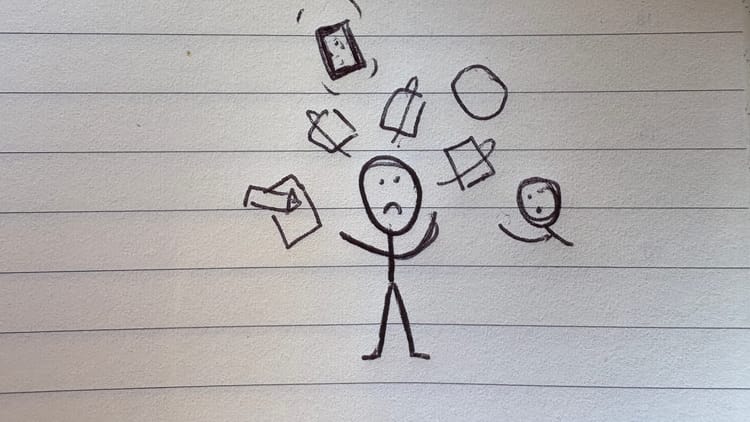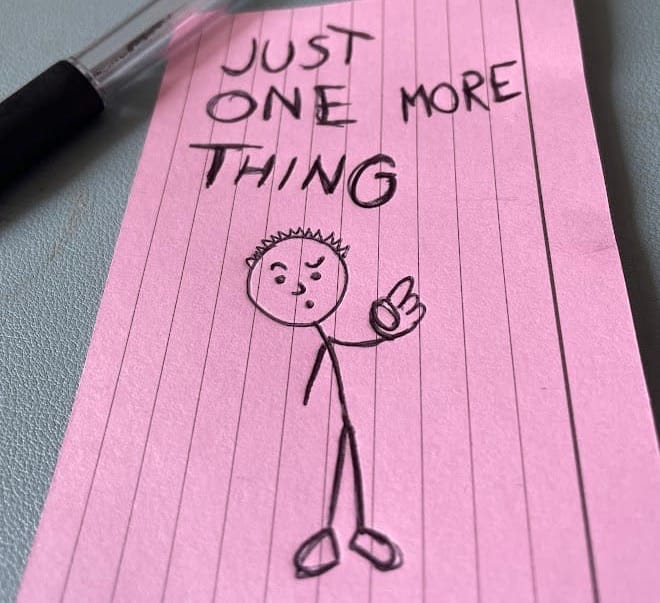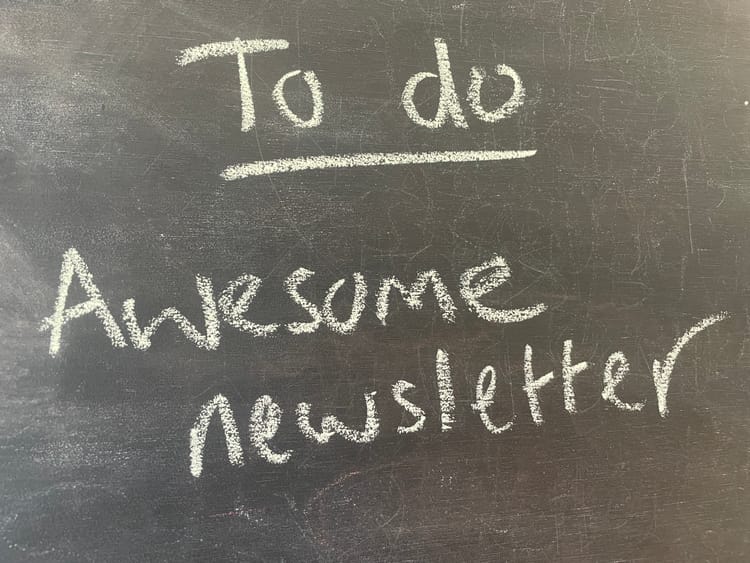TAKE THE FEEDBACK! Constructively!!

Hello all,
Instead of posting updates about how the business is developing, this month I'm starting to deliver on my promise to provide some useful ideas to apply at work. So this week I’ll be writing about:
- What happened when my little brother asked me reasonable questions
- How I reacted poorly, then realised the value
- How you can overcome prejudice when receiving feedback
If you enjoy this email and following the journey I’m on, please consider forwarding it on to someone who might be interested. Even just one person once a week would really help me get the word out about Hurst Coaching.
Unexpected Challenge and Predictable Reaction
I sent my two brothers an excited text about the soft launch of Hurst Coaching. I’d worked hard over the weekend on it and wanted to share it with two people who I thought would support me and tell me how clever I was. You may remember from the video with my musings that I tend to do something like this every few years. They understand this and the have (hopefully) made peace with this.
One of my brothers, however, then started sending me some questions in response. Questions that I was unprepared for. As I tried, through text message, to answer him, I started to get more and more annoyed. He just didn’t get my idea, I told myself.
Why should I have to explain this genius idea of mine to my little brother, of all people?
The same little brother who would, with his friends, hang around and annoy me and my friends in the playground. The same brother who would force me to share the Super Nintendo, rather than just sit and watch me play Zelda?
So my responses to him were not very friendly. They probably came across a bit snarky and annoyed. Then he dropped in “Because I’ve done some research..”
Then I understood. This was not my little brother asking these questions. It was a fellow professional seeking clarity. Because, for all of the things I remember my brother being, he is also a skilled modern worker (and of course, my target audience!).
Recognising Prejudiced Reactions
The problem with asking your nearest and dearest for feedback and ideas is that they sometimes give you get them.
I was totally unprepared for this level of challenge from my little brother. I wasn’t expecting anything other than congratulations or well wishes.
And that, of course, is entirely my failure.
When I paused and thought about his questions, I realised that they were not coming from the same person that would shout vulgarities to me across the playground. They were questions that other people would want to know as well. They were questions that he’d thought about, researched and asked for clarification of.
Those are exactly the behaviours that I expect potential clients to exhibit.
So my dismissal and annoyance was not unjustified, it was self-sabotaging.
Over my career, I’ve worked to be the type of professional who doesn’t ignore ideas and challenge because of its source. I actively encourage people to speak out and challenge what I’m doing and the assumptions I’ve made. So it was odd to see that behaviour reflected in me - especially when dealing with my family!
So, I took a breath, looked at his questions again and really thought them through. Doing so brought real clarity to how I was going to answer him. Then I posted the answers.
If I’d ignored my brother’s comments and ploughed on regardless, I would have a weaker offer now. I wouldn’t be as clear at what I’m doing or saying, and I wouldn’t have got them most from his ideas. I wonder, looking back, how many times he’s (quite rightly) challenged me and I’ve dismissed it because of who his was rather than what he was saying.
Avoiding Prejudiced Reaction to Feedback
There’s probably one person who you interact with at work who really winds you up. They might do it on purpose or by accident, but no matter what, there’s a little sense of annoyance whenever they’re about.
First of all - that’s natural. We’re human. We’re not supposed to like everybody.
However, there’s a risk here that you might end up ignoring the value that person brings. Sure, they might nick the teabags, but they also might have excellent data analysis skills.
So, how do you separate your feelings towards teabag-pincher from the feedback they might provide?
My favourite technique is to do just that - separate them.
Pause before reacting
This is the most important thing you can do. Too often we rush to a reaction (like I did above) and we forget to properly think about how we respond. Very rarely do we need to respond straight away. Even if you think you do, challenge yourself about what would happen if you took some extra time to consider the situation.
Immediate reactions are almost always worse than considered ones. You forget nuance, you forget other factors that might be impacting on the person you’re talking to. You forget about long term impacts of your actions. This means you almost certainly won’t be bringing that into your response.
So, next time you get some feedback that you’re unsure how to handle, sleep on it. Take a moment and think about it. Then react, when the dust has settled and you’ve been able to think things through properly.
What if someone else asked me this?
Take the comment or challenge that’s been given to you and assign it to someone else. Don’t think “Teabag-pincher said this,” instead, think “The person who sits next to TBP said this,”. This works really well at removing that link in the back of your brain that’s preventing you from analysing the feedback properly.
What if your mentor told you this? What if your other half? How would you react then? How would you justify it to them?
If someone’s opinion is easily dismissed, then make that opinion (temporarly at least) someone else. This is important when dealing with challenge from junior staff. Ask yourself how you would react if your favourite boss asked you the same questions.
Explain again - but different.
If someone asks a question you think you’ve explained a thousand times before, it's not their failure to understand that's the issue. Flip things around. What if, rather than any reason you’ve created, they simply just don’t understand things the way you’ve been explaining them?
So rework how you present things. If you’ve just been using email, try picking up the phone. If you’re on the phone or in a meeting, try writing it down. I’m a big fan of writing things down as a way to work out and define problems and issues, as I find it focuses me a little more.
People are not misunderstanding you on purpose. Like my brother, they are really trying to figure things out and get them right in their own head.
Summary
I hope that the above has helped, in some way. These ideas are not guarenteed to work, but they will help you take a more controlled and deliberate way to work with people and feedback.
I’d love to hear if anyone tries these techniques, and if they worked for you. Send me an email, comment on the post (if you’re a subscriber). I’ll read it all.
If this post has helped you in some way, consider sharing the Hurst Coaching newsletter with someone who might benefit from it.






Member discussion